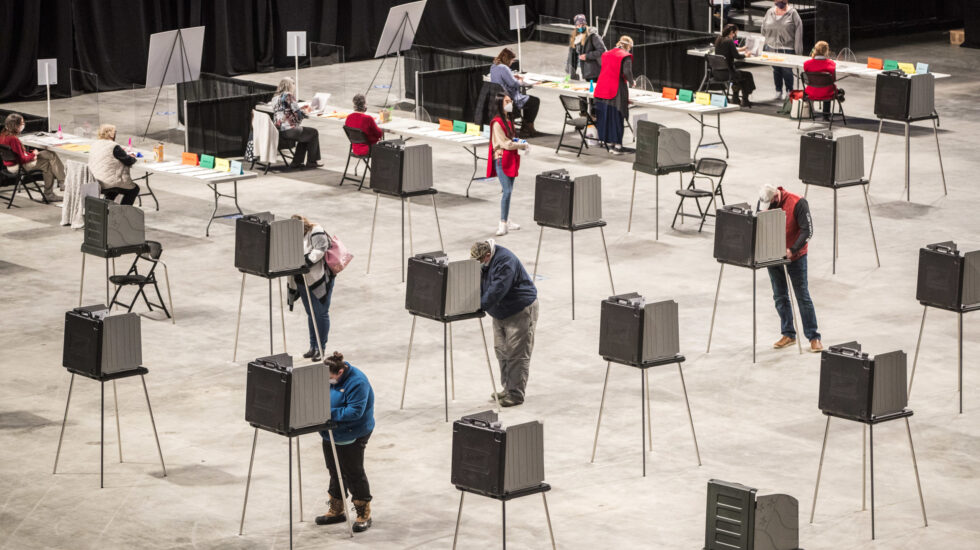President Joe Biden gave a speech on Tuesday that framed voting rights as an existential imperative for America: “the issue is: Will we choose democracy over autocracy, light over shadows, justice over injustice?”
He said two bills set to appear before Congress in the next few days “will mark a turning point in this nation’s history.”
So what’s exactly in the two pieces of legislation – The Freedom to Vote Act and The John Lewis Voting Rights Advancement Act?
The Freedom to Vote Act:
- Establishes Election Day as a national holiday.
- Requires states to guarantee that no voter has to wait more than 30 minutes to cast their ballot.
- Mandates early voting periods for at least two weeks prior to Election Day, including opportunities on nights and weekends. Early voting days would have to be at least 10 hours.
- Allows no-excuse vote by mail for every eligible voter. States would be prohibited from erecting unreasonable barriers in order to curb vote by mail, including requiring a notary stamp. Voters would be allowed to request a ballot online and submit their ballots via drop boxes or at their polling location.
- Makes automatic voter registration, same day voter registration, and online voter registration the national standard.
- Restores voting privileges to formerly incarcerated citizens upon their release.
- Increases the punishment for distributing misleading information about voting.
- Expands the acceptable forms of non-photographic identification in places where IDs are necessary to vote.
- Bolsters voting access for disabled people.
- Establishes certain criteria for drawing new congressional districts, a move designed to eliminate partisan gerrymandering.
- Forces states to notify residents with 48 hours if they’ve been purged from the voter roll.
- Bans local election officials from being fired without cause.
- Increases the penalties for post election mishandling of ballots, a provision intended to thwart specious audits similar to Arizona’s.
- Fights “dark money” by requiring all entities that spend over $10,000 on an election campaign to reveal all their donors.
- Requires ads to clearly identify their sponsors.
- Tightens rules governing Political Action Committees.
- Offers voluntary small donor matching system for House elections.
- Stipulates that states must generate voter-verified paper records and conduct transparent post election audits.
The John Lewis Voting Rights Advancement Act:
- Updates the pre-clearance formula used to determine which states must get approval from the Department of Justice or a Washington DC federal court before changing their election laws. States with a history of voting rights violations will be subject to increased scrutiny. (In 2013, the Supreme Court gutted The Voting Rights Act of 1965. The JLVRAA seeks to re-establish many of the provisions in the original law).
- Subjects states to pre-clearance requirements if, among other things, they draw districts that intentionally disenfranchise minority voters, curb access to multilingual voting materials, or reduce polling locations in minority areas.
- Makes it easier for voters to sue to block voting laws that are designed to be discriminatory or will yield discriminatory results.
- Expands voting opportunities for Native Americans living on tribals lands.
The House passed both bills on Thursday morning, but there’s an uphill battle in the Senate.
CNN explains:
The problem facing Democrats is that they don’t have the votes to pass voting legislation under current Senate rules due to Republican opposition and they also do not appear to have the votes to change the rules. Democratic Sens. Joe Manchin of West Virginia and Kyrsten Sinema of Arizona, two influential moderates, have long expressed opposition to eliminating the 60-vote threshold required to pass most legislation.
But Biden continues to press his case and is scheduled to meet with lawmakers later in the day.



